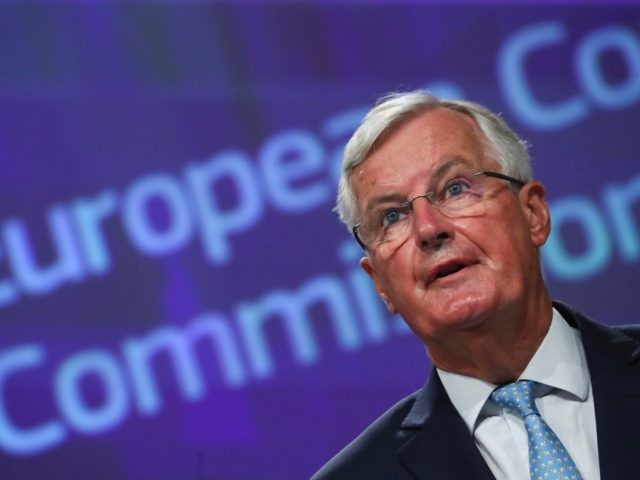The European Union’s chief Brexit negotiator, Michel Barnier, has reportedly baulked at Britain’s latest framework for a trade deal while urging EU member states to be “cold-blooded” in the Brexit talks with the UK.
Negotiators in Brussels have informed EU member states that the proposed basis put forward by Britain for a free trade agreement is “unrealistic” and not a basis for discussion,” as talks continue to flounder over the bloc’s insistence on having access to profitable British fisheries and binding the UK under EU directives and regulations.
Sources within the bloc, speaking to the British newspaper The Sun, said that “as long as Member State priorities are not catered for, the Commission doesn’t consider a drafting exercise based on this text helpful.”
Mr Barnier’s negotiating team told EU diplomats that Britain’s latest proposal only outlines the UK’s “offensive interests” and fails to address Europe’s demands, as it does not deal with the bloc’s call for a “level playing field” that would restrict the United Kingdom’s ability to craft reforms to be more competitive on the global stage.
The Eurocrat opined that Britain’s “clear strategy” is an attempt to “trade-off” rights to British fishing waters in exchange for freedom from onerous EU regulations at the final stages of the trade talks.
“Those who were hoping for negotiations to move swiftly forward this week will have been disappointed,” Barnier said following the latest round of trade talks.
Germany Complains British Insistence on Full Independence in Brexit Deal Not ‘Realistic’ https://t.co/MDygZ6TYYW
— Breitbart London (@BreitbartLondon) August 7, 2020
Former Brexit Secretary David Davis said that the UK should be ready for trade negotiations to fall apart, saying: “The last three weeks will matter more than the first three years.”
While Britain officially left the European Union on January 31st, 2020, it remains bound by EU rules and institutions, including the Single Market, Customs Union, and the bloc’s migrant movement arrangements. The UK will be subject to these rules until the end of the year.
If the two sides cannot come to a trade agreement by autumn, the United Kingdom will begin trading with the EU on World Trade Organization (WTO) terms.
Sources within Whitehall have said that cabinet office minister, Michael Gove, is spending most of his time in preparing the UK to trade with the bloc on WTO terms in the event a trade deal is not signed.
“When talking to the previous government, the EU were dealing with a negotiating team that may have wanted Brexit in name only, with minimal changes. That is clearly not the case now. The EU need to realise that we are not up for continuing previous arrangements. When they understand that, it will be easier to make progress,” a British government source told The Times.
“The EU’s insistence that nothing can progress until we have accepted EU positions on fisheries and state-aid policy is a recipe for holding up the whole negotiation when time is short for both sides,” a source close to Britain’s Brexit negotiator David Frost’s team said.
“While they may try and take the moral high ground, it remains the fact that their obsession with these two issues risks blocking progress. We are ready to knuckle down and get into the detailed discussions of legal texts that are what is needed now. We hope the EU will do likewise,” the source added.
EU Rejects Post-Brexit Deal on Returning Illegals, Trade Talks Deadlocked https://t.co/POCmlayI2J
— Breitbart London (@BreitbartLondon) August 21, 2020
Meanwhile, a breakthrough in the trade talks with Japan is likely to result in Britain’s first post-Brexit trade deal being signed next week after just three months of negotiations.
A Downing Street official said on Monday that the deal is expected to be signed by next Monday, according to City AM.
The deal is modelled on Japan’s trade agreement with the European Union, which was signed last year but will see more advantageous arrangements set in place for the United Kingdom.
The deal will is expected to see tariffs reduced on Japanese cars in exchange for a reduction of tariffs on British products including cheeses as well as providing greater access to Japanese markets for British companies.
“We have reached a consensus in many elements of the deal, including digital data and financial services that goes beyond the EU-Japan trade deal,” the Downing Street official added.
UK to Sign First Post-Brexit Trade Deal with Japan: Report https://t.co/iiVjvMEMM1
— Breitbart London (@BreitbartLondon) July 29, 2020
Follow Kurt on Twitter at @KurtZindulka

COMMENTS
Please let us know if you're having issues with commenting.